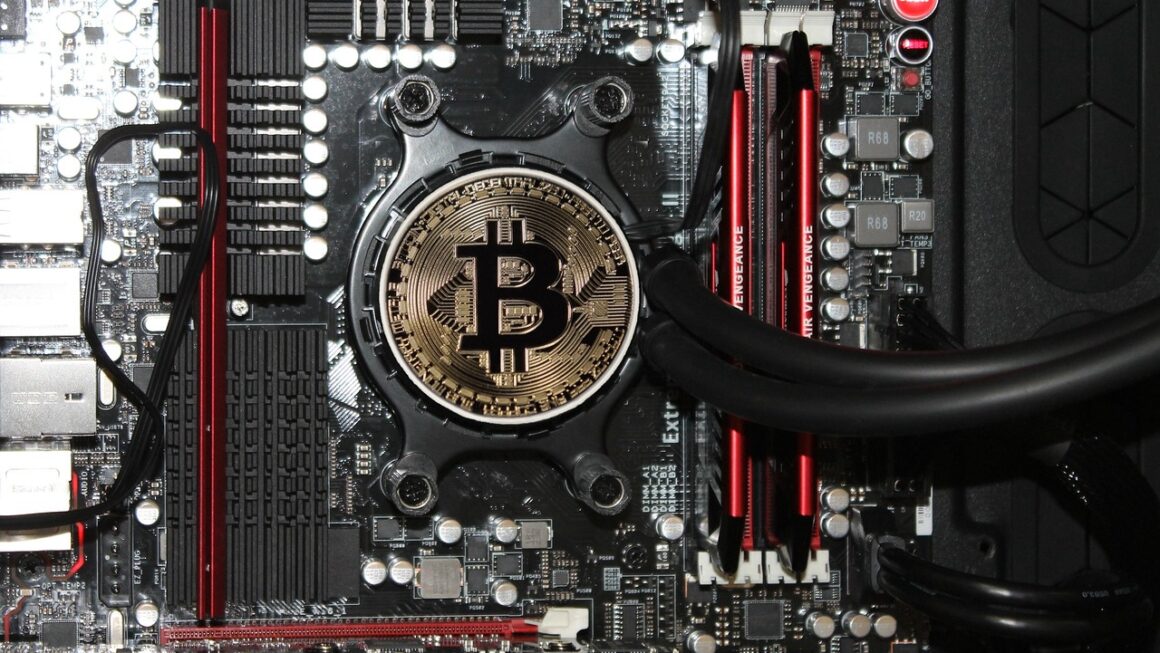Imagine wanting to quickly buy a cup of coffee with cryptocurrency. Fumbling with a complex hardware wallet every time would be cumbersome. That’s where hot wallets come in – providing readily accessible cryptocurrency at your fingertips. But with convenience comes a trade-off. Let’s dive into the world of hot wallets, exploring their functionalities, security considerations, and how they fit into your broader crypto strategy.
What is a Hot Wallet?
Definition and Key Features
A hot wallet, also known as an online wallet, is a cryptocurrency wallet that is connected to the internet. This connectivity allows for quick and easy access to your digital assets, making it ideal for frequent transactions. Think of it as your everyday digital spending money.
- Connectivity: Always connected to the internet.
- Accessibility: Accessible from multiple devices (desktop, mobile).
- Convenience: Designed for frequent transactions and quick access.
- Software-Based: Typically a software application or a web-based service.
Examples of Hot Wallets
There are several types of hot wallets available, each offering varying degrees of security and usability:
- Desktop Wallets: Software downloaded and installed on your computer (e.g., Exodus, Electrum (can be configured as cold storage for Bitcoin)).
- Mobile Wallets: Apps installed on your smartphone (e.g., Trust Wallet, Coinbase Wallet).
- Web Wallets: Accessible through a web browser (e.g., MetaMask, MyEtherWallet).
- Exchange Wallets: Integrated into cryptocurrency exchanges (e.g., Binance, Coinbase). Note: Keeping significant funds on an exchange is generally discouraged due to the risk of hacks and platform issues.
Benefits of Using Hot Wallets
Ease of Use and Accessibility
The primary advantage of hot wallets is their ease of use. Setting them up is usually straightforward, and transactions can be completed within seconds.
- User-Friendly Interface: Most hot wallets offer intuitive interfaces.
- Quick Transactions: Ideal for daily transactions and small purchases.
- Cross-Platform Compatibility: Accessible from various devices and operating systems.
Practical Example:
Imagine you’re attending a crypto-themed conference and want to buy merchandise from a vendor accepting cryptocurrency. A mobile hot wallet allows you to quickly scan a QR code and complete the payment.
Supported Cryptocurrencies
Hot wallets often support a wide range of cryptocurrencies, making them versatile tools for managing a diverse portfolio.
- Multi-Currency Support: Many hot wallets allow you to store multiple cryptocurrencies in one place.
- Token Compatibility: Some hot wallets support ERC-20 tokens and other token standards.
Security Considerations for Hot Wallets
Risks Associated with Online Connectivity
Being connected to the internet makes hot wallets inherently more vulnerable to hacking attempts and malware. This is the major drawback compared to cold wallets.
- Hacking: Susceptible to hacking attempts due to constant internet connectivity.
- Malware: Vulnerable to malware that can steal private keys.
- Phishing: Risk of phishing attacks that trick users into revealing their credentials.
Best Practices for Securing Your Hot Wallet
While hot wallets carry inherent risks, you can mitigate them by following these best practices:
- Strong Passwords: Use strong, unique passwords for your wallet and associated accounts.
- Two-Factor Authentication (2FA): Enable 2FA whenever possible to add an extra layer of security.
- Regular Software Updates: Keep your wallet software updated to patch security vulnerabilities.
- Anti-Virus Software: Install and maintain up-to-date anti-virus software on your devices.
- Limit Exposure: Only keep a small amount of cryptocurrency in your hot wallet that you’re comfortable losing.
- Be Wary of Phishing: Always verify the legitimacy of websites and emails before entering your credentials.
- Use a Hardware Wallet in Conjunction: Consider using a hardware wallet to store the majority of your crypto assets and only transfer smaller amounts to a hot wallet for daily use.
Statistics on Crypto Hacks:
According to a Chainalysis report, over $3 billion in cryptocurrency was stolen in hacks in 2022, highlighting the importance of robust security measures, particularly for hot wallets.
Hot Wallets vs. Cold Wallets
Key Differences
The fundamental difference between hot and cold wallets lies in their connectivity to the internet.
- Hot Wallets: Connected to the internet; convenient for frequent transactions; more vulnerable to attacks.
- Cold Wallets: Stored offline; highly secure for long-term storage; less convenient for daily use.
When to Use Each Type of Wallet
- Hot Wallet: Ideal for small, frequent transactions, such as buying coffee, trading, or accessing DeFi applications.
- Cold Wallet: Best for storing large amounts of cryptocurrency securely for the long term (e.g., savings, investments).
Example Scenario:
You have $10,000 worth of Bitcoin. You decide to keep $9,800 in a cold wallet (e.g., Ledger Nano S) for long-term storage and $200 in a hot wallet (e.g., Trust Wallet) for daily transactions and small purchases.
Choosing the Right Hot Wallet
Factors to Consider
Selecting the right hot wallet involves considering several factors to ensure it meets your specific needs and security requirements.
- Security Features: Look for wallets with strong security features such as 2FA, multi-signature support, and biometric authentication.
- Supported Cryptocurrencies: Choose a wallet that supports the cryptocurrencies you intend to use.
- User Interface: Opt for a wallet with an intuitive and user-friendly interface.
- Reputation: Research the reputation of the wallet provider and read reviews from other users.
- Backup and Recovery Options: Ensure the wallet offers reliable backup and recovery options in case you lose access to your device.
- Fees: Be aware of transaction fees associated with the wallet. Some wallets may charge higher fees than others.
Popular Hot Wallet Options:
- MetaMask: A popular web wallet for interacting with decentralized applications (dApps) on the Ethereum blockchain.
- Trust Wallet: A mobile wallet with a built-in Web3 browser for accessing dApps.
- Exodus: A desktop and mobile wallet with a user-friendly interface and support for a wide range of cryptocurrencies.
- Coinbase Wallet: A mobile wallet from the popular exchange, offering easy integration with Coinbase accounts.
Conclusion
Hot wallets provide a convenient gateway to the world of cryptocurrency, facilitating quick and easy transactions. However, their online connectivity introduces security risks that must be carefully managed. By understanding the trade-offs, implementing best security practices, and choosing the right wallet for your needs, you can harness the benefits of hot wallets while minimizing potential threats. Remember, a diversified approach to cryptocurrency storage, combining hot and cold wallets, is often the safest and most practical strategy. Treat your hot wallet like your physical wallet – only keep what you need for immediate use and protect it diligently.
Read our previous article: Quantum Leaps & Glitches: Decoding The Latest Tech




